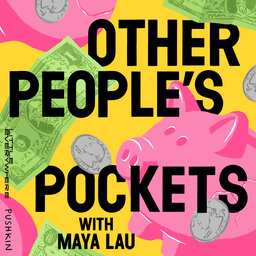Nick Sansano, Record producer and NYU professor
He's produced and mixed records for Public Enemy, Ice Cube, Sonic Youth and others, but Nick Sansano doesn't blow his royalty checks on fancy cars. How did this music maker build a life in expensive NYC despite the ups and downs of his field (and despite the sometimes ruthless politics of being an NYU professor)?
Check out Nick Sansano in his band, Bronze Fondue.
Follow Maya Lau at:
Twitter: @mayalau
Instagram: @itsmayamoney
TikTok: @itsmayamoney
In 1 playlist(s)
Other People's Pockets
Have you ever wondered how your friend bought that vacation home or why that colleague of yours make…Social links
Follow podcast
Recent clips

Listen As I Get Financially Planned
33:55

Things are different now with our money
53:00

How I do money after severing ties with my family
34:45
 Other People's Pockets
Other People's Pockets